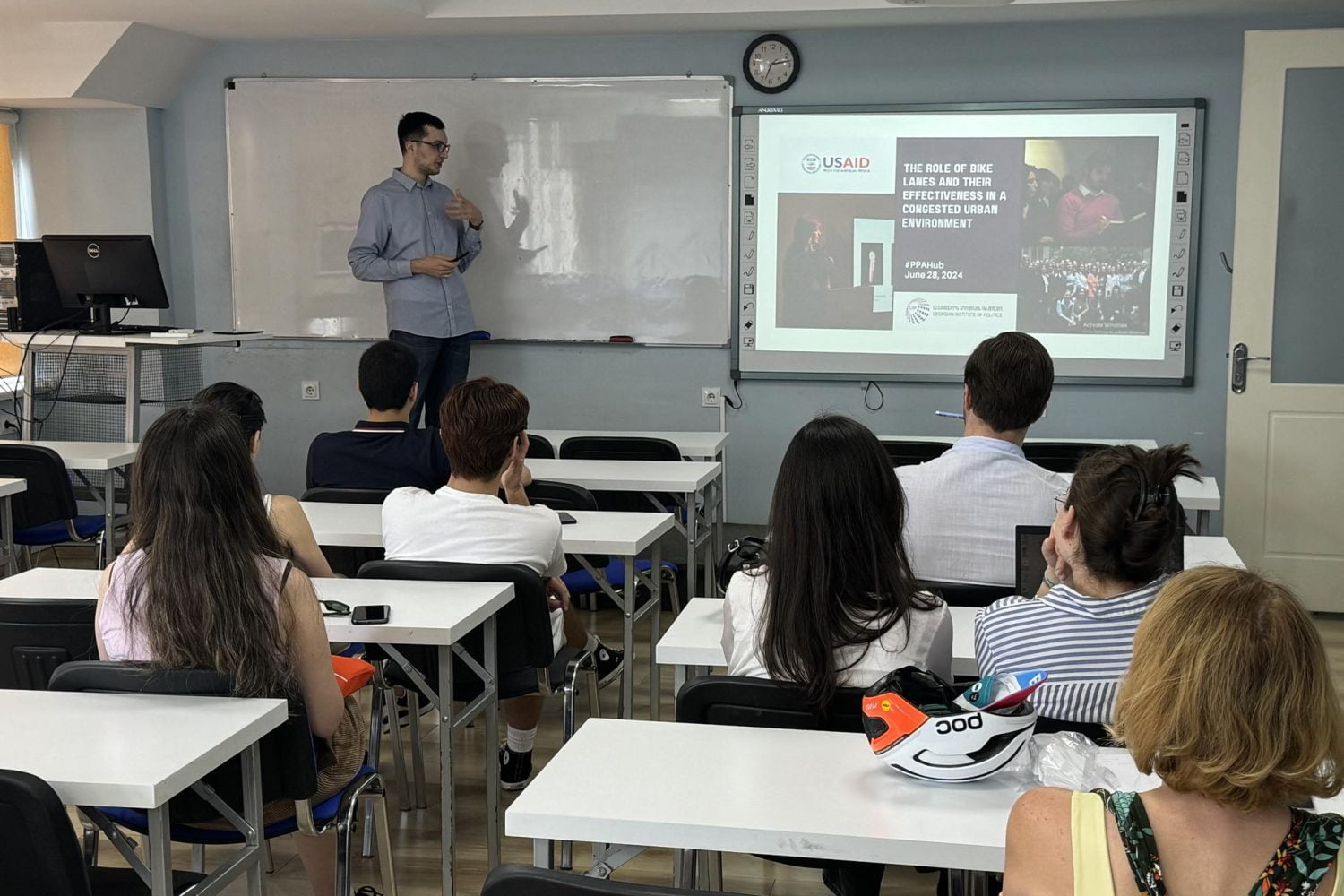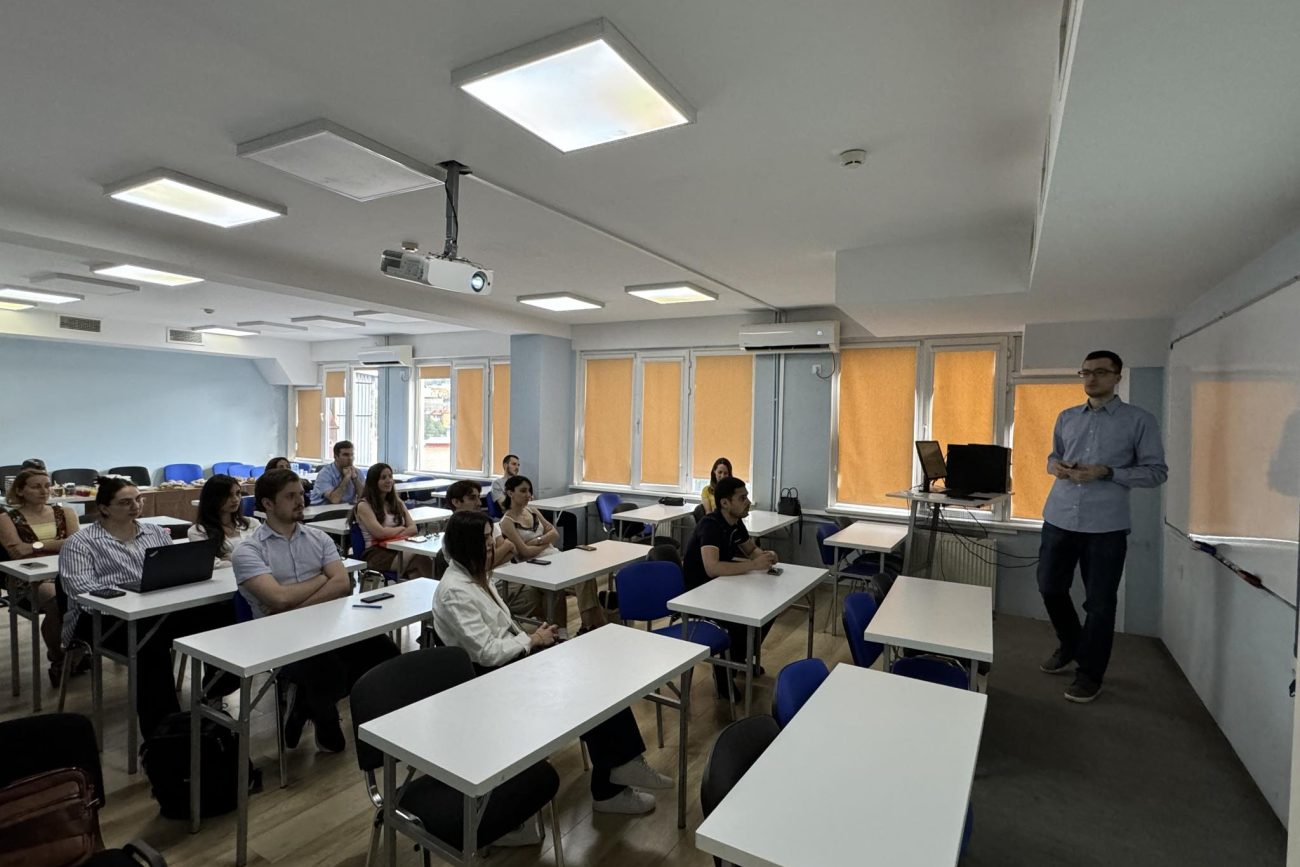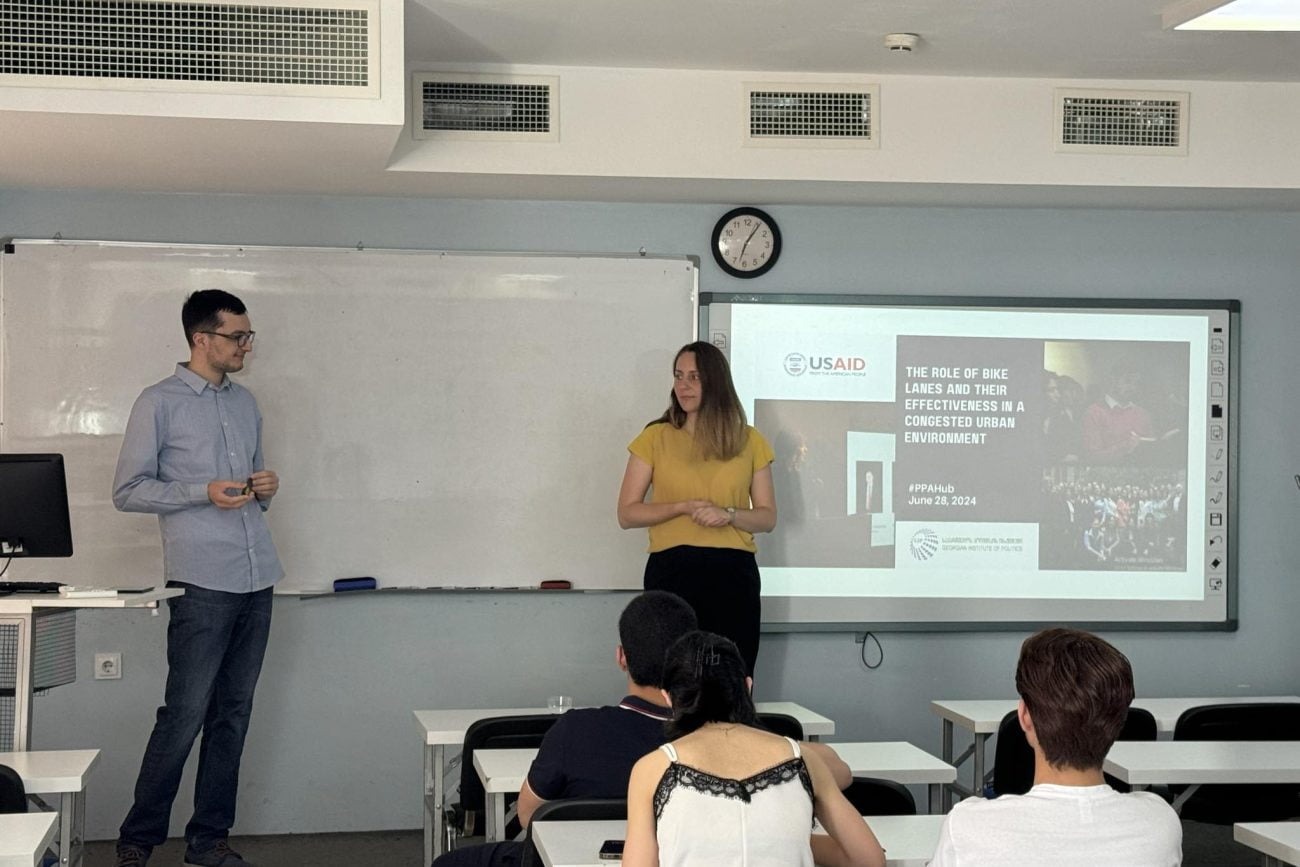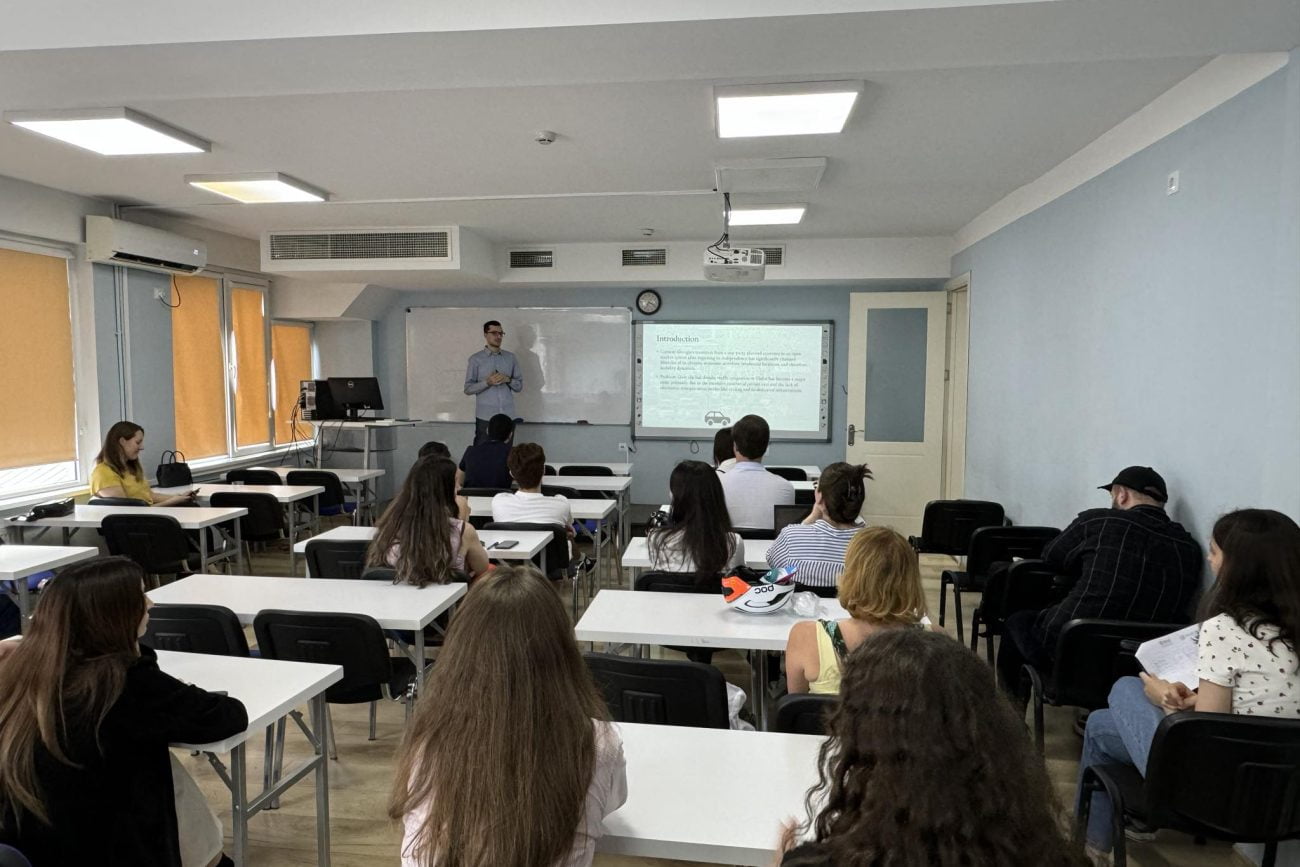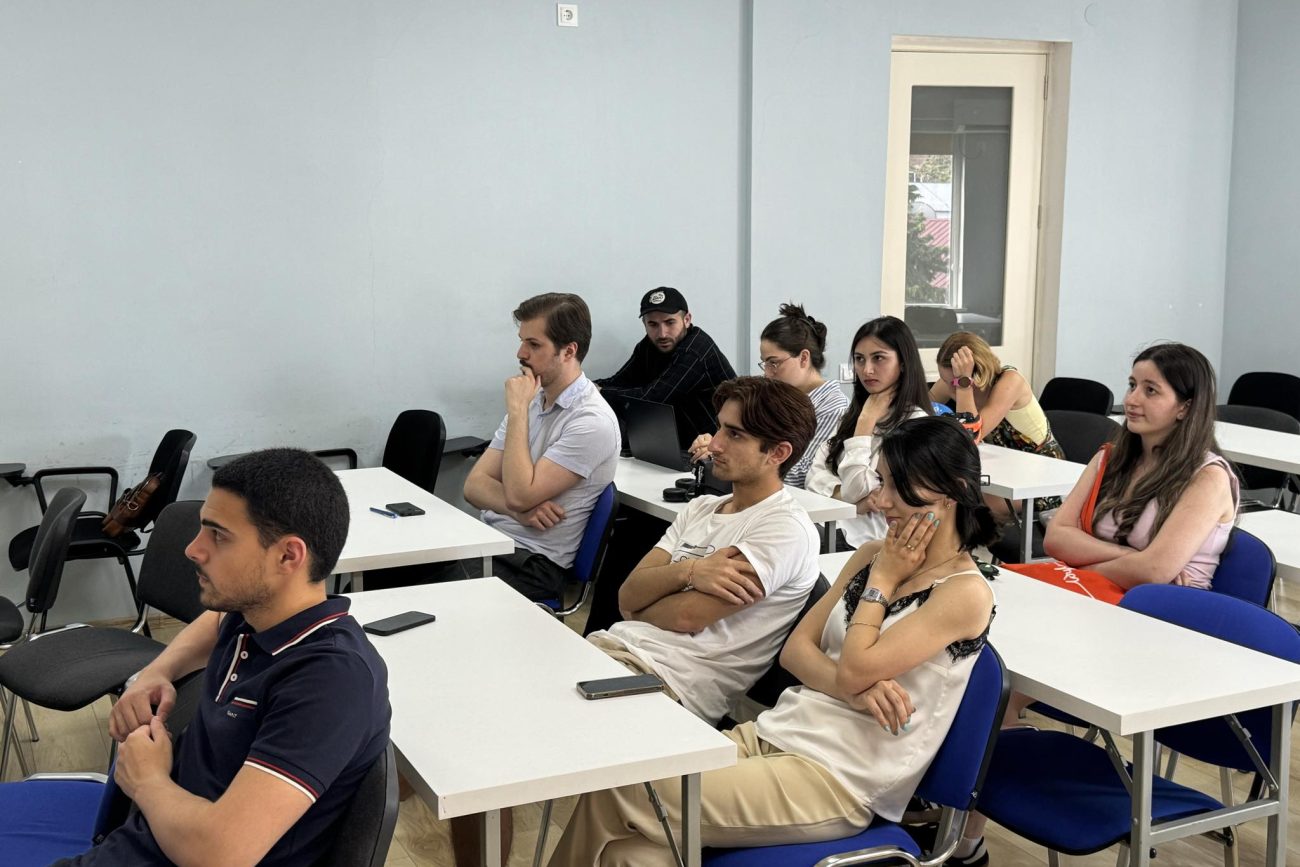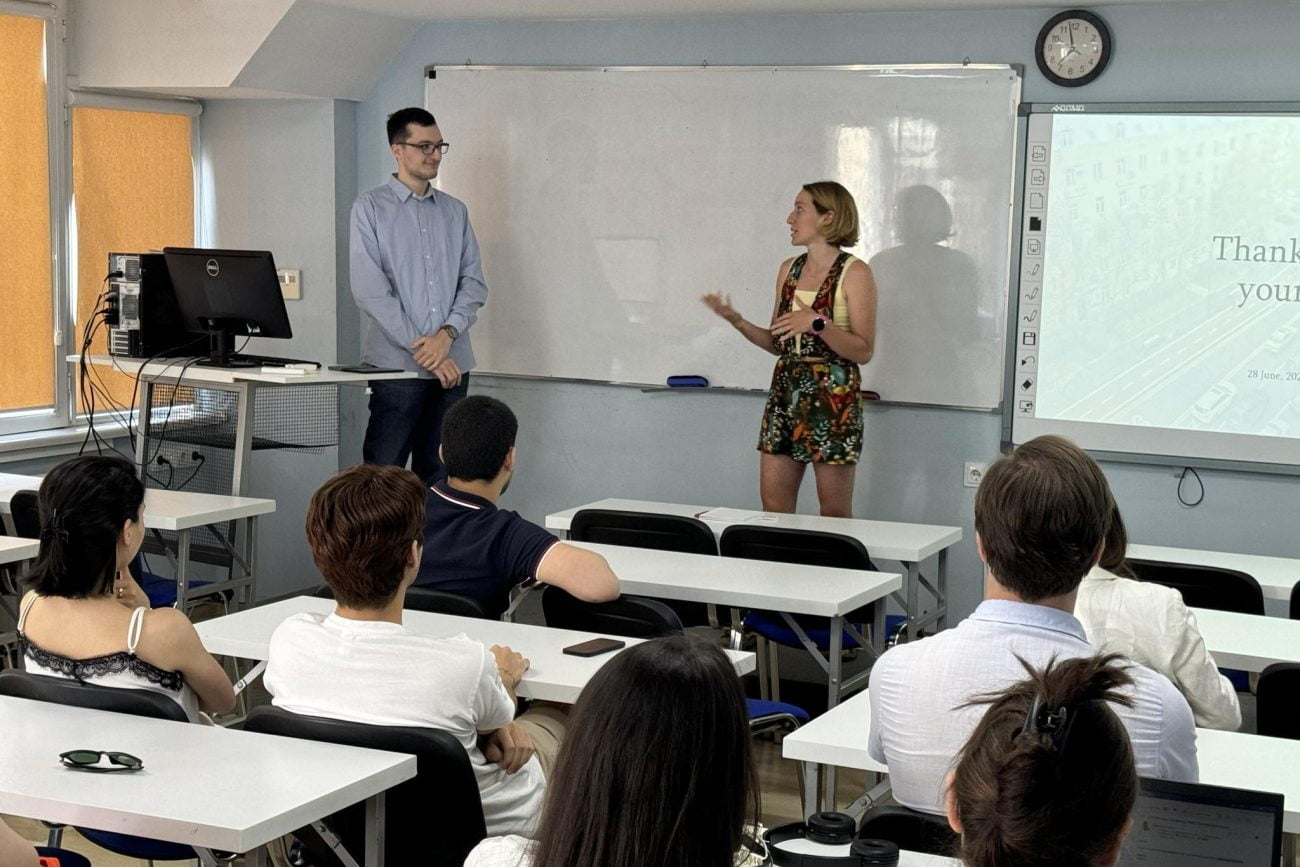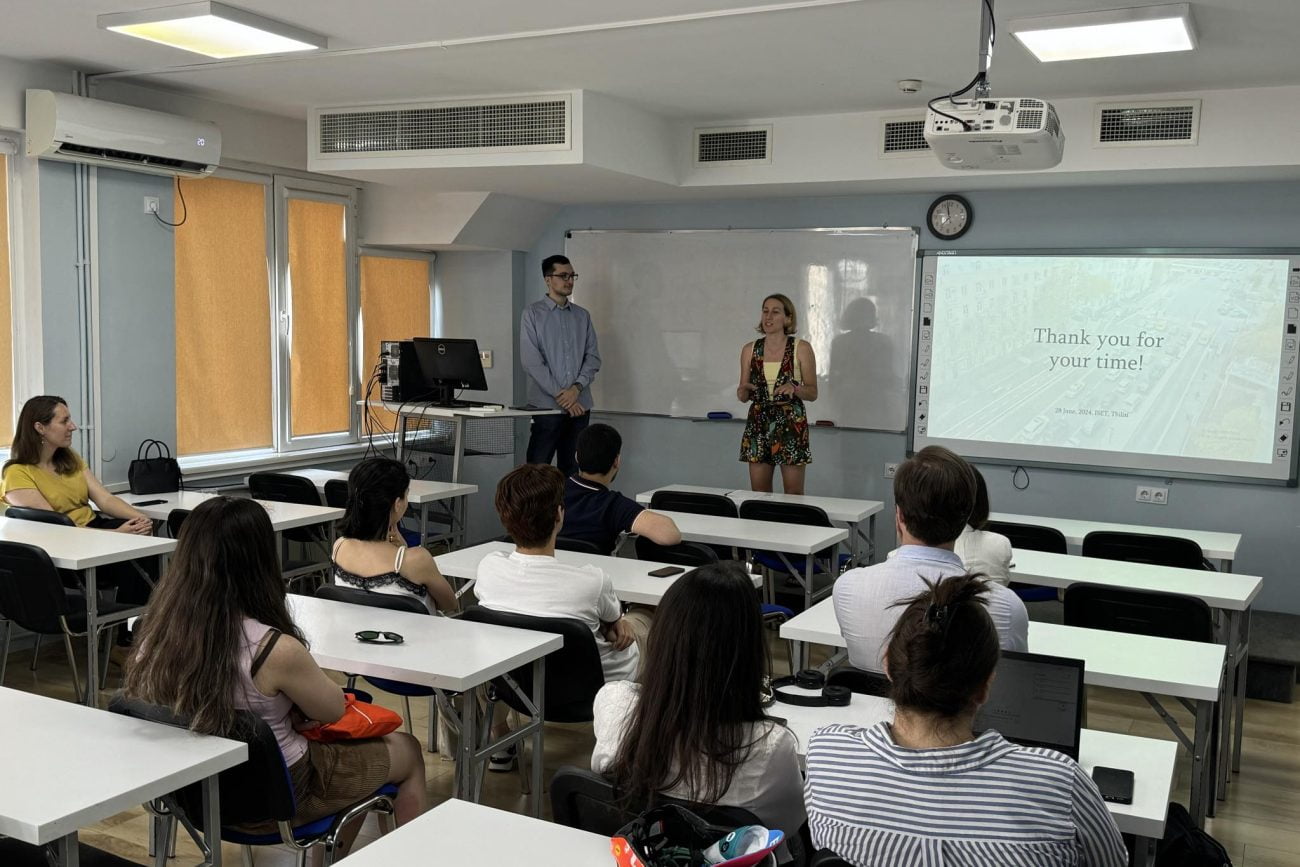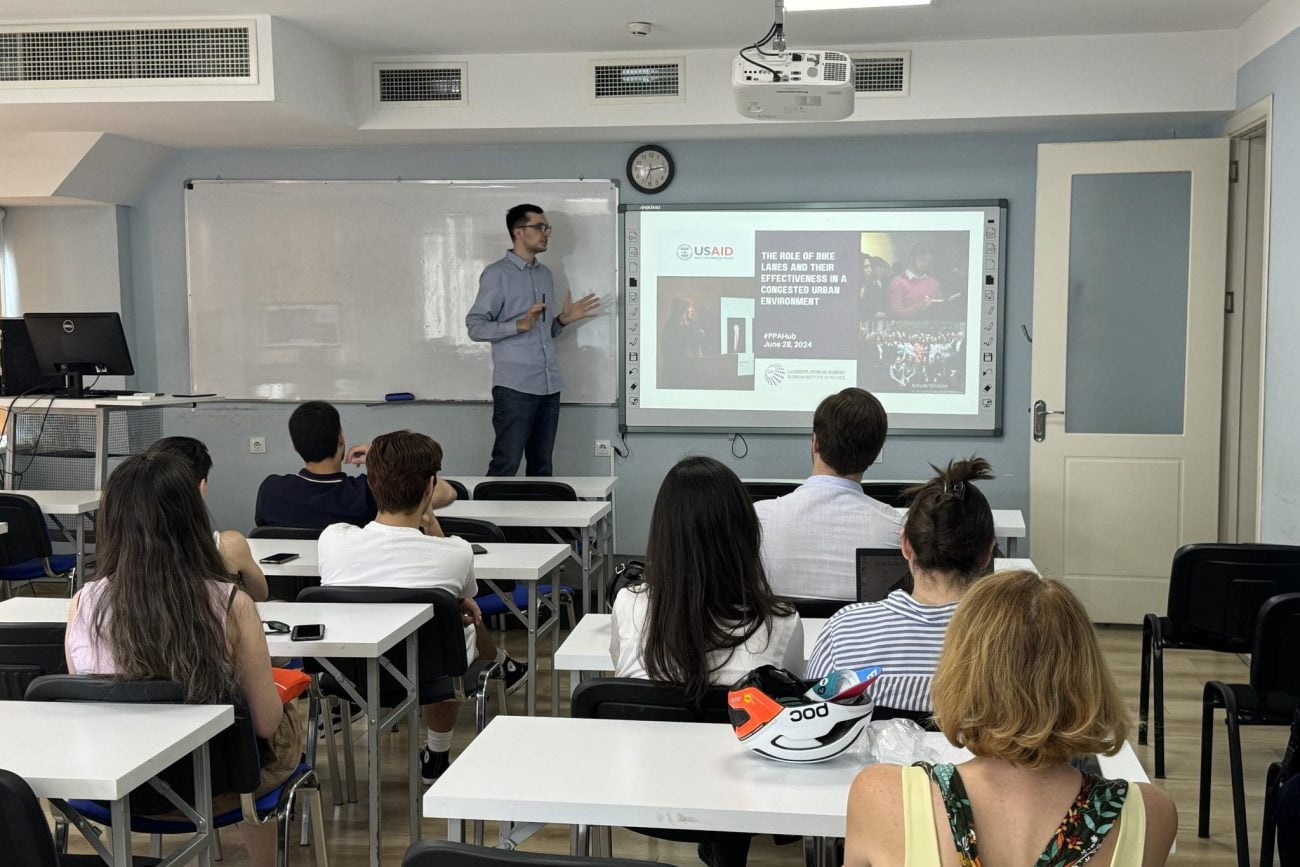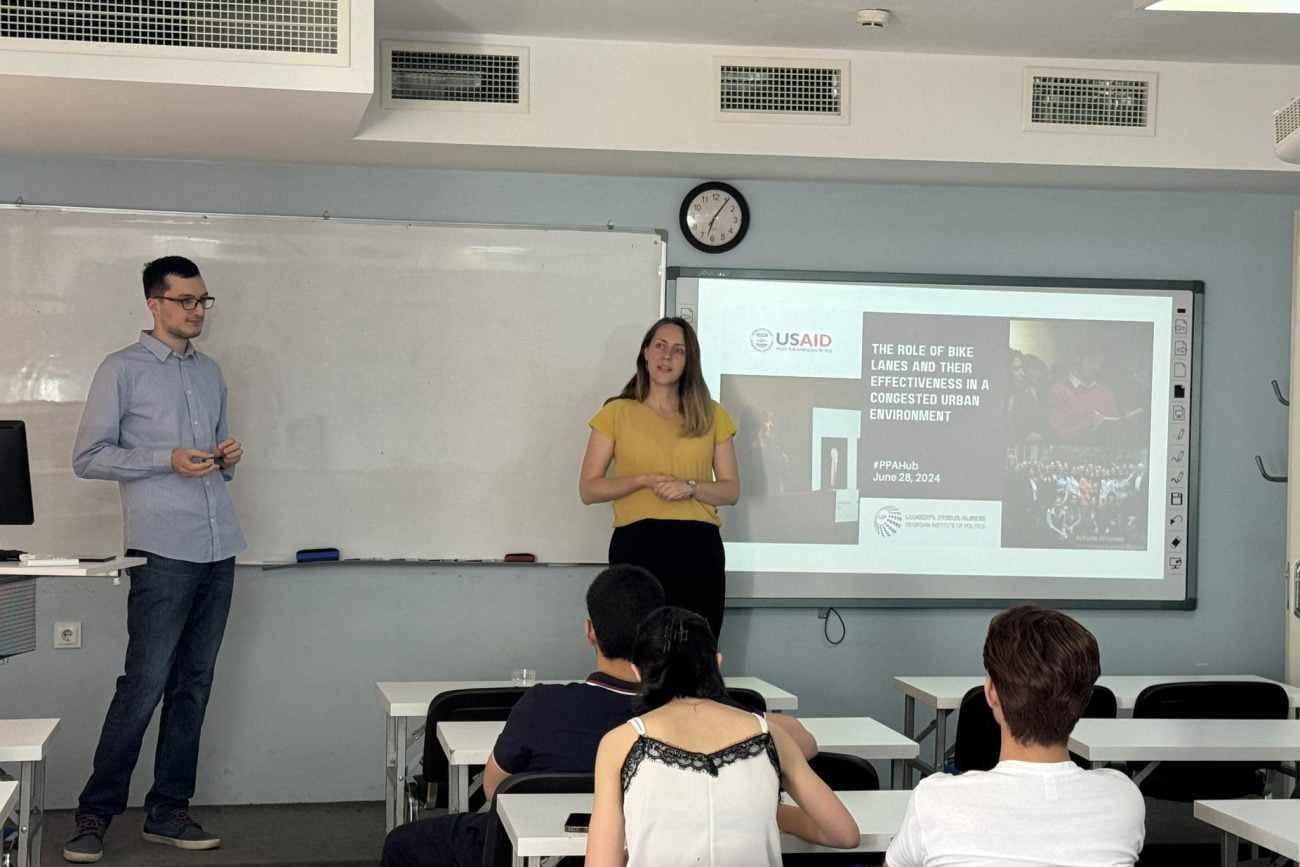On June 28, the first work-in-progress presentation of the policy brief was held at the Public Policy Analysis Hub (PPAHub) of the Georgian Institute of Politics.
The presentation featured a work-in-progress policy brief titled “The Role of Bike Lanes and Their Effectiveness in a Congested Urban Environment” by Shio Jashi, the author of the brief and a participant in the Public Policy Analysis Course. The event took place at the International School of Economics of Tbilisi State University (ISET). The public policy brief falls under the category of municipal issues and challenges in Georgia.
The policy brief “The Role of Bike Lanes and Their Effectiveness in a Congested Urban Environment” addresses the controversial situation that exists in the cities of Georgia, especially in the capital city – the unresolved problem of traffic jams caused by the absence of alternative modes of transportation methods, or lack of quality in them, such as bicycle infrastructure. One of the most notable outcomes of the Tbilisi Transport Reform, implemented in the last decade, was the introduction of bike lanes in the city for the first time. Nonetheless, the use of bicycle infrastructure remains the most unpopular mode of transportation in the city, in contrast to public transport, which has had an increasing number of users in recent years.
Currently, the bike lane network in Tbilisi is not yet fully connected. In addition to this problem, there are no safety rules and regulations for bicycle lanes and for their use. As a result, their popularity among citizens is low, and the existence of bike lanes is often neglected by both pedestrians and car drivers. In the Georgian capital, and not only, the increase in traffic congestion and air pollution caused by heavy dependence on cars remains a pressing issue. In this context, it is necessary to investigate the potential of one of the transportation alternatives, such as bike lanes, and implement their effective management to reduce car usage and dependency. The policy document includes recommendations from field experts and citizens for the effective development and use of bikeways to promote a sustainable and livable urban environment. Two focus group studies on the use of bike lanes were conducted. In addition, interviews were conducted on the potential and challenges of existing cycle paths with the Caucasus Cycling Network, CCN, and the Partnership for Road Safety Organization.
Mar Mikhelidze, co-founder of the Caucasus Cycling Network (CCN), attended the presentation session. Mikhelidze introduced the audience to the challenges and issues outlined and mentioned in the policy brief. In the end, the audience has the possibility to ask questions to the presenters.
Work in Progress presentations are conducted within the framework of the “Public Policy Pilot Initiatives to Engage and Mentor Youth” project, implemented by GIP with the support of the USAID National Governance Program.


